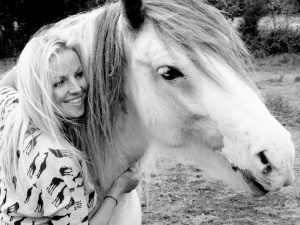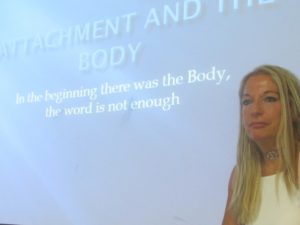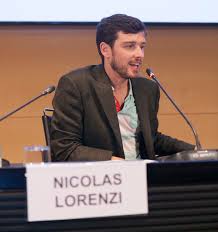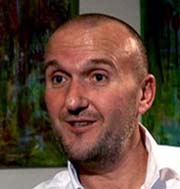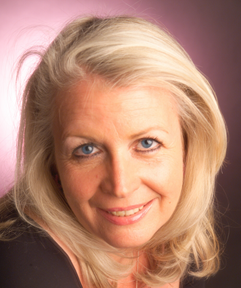| Day | Date | Event | Presenter | Venue | ||||||
|---|---|---|---|---|---|---|---|---|---|---|
| Friday | 17/03/2017 | Hope in counselling and psychotherapy | Dr John Prysor-Jones | Friends Meeting House | ||||||
| Friday | 04/05/2018 | Forgiveness in counselling and psychotherapy | Sue Hanisch | Friends Meeting House | ||||||
| Friday | 15/06/2018 | Echoism: The silenced response to narcissism | Donna Savery | Friends Meeting House | ||||||
| Friday | 29/06/2018 | Attachment research tools for clinicians and practitioners | Sonia Gojman de Millan | Friends Meeting House | ||||||
Metaphor in counselling and psychotherapy |
||||||||||
| Dr Jonathan Lloyd | ||||||||||
| 07 Dec 2018 | ||||||||||
 |
||||||||||
| On Friday 7th December 2018 | we repeated and updated our popular workshop on metaphor in counselling and psychotherapy. He presented the findings of his new book Whales in the Desert: The Use of Metaphor in Therapy. | |||||||||
| Metaphor in counselling and psychotherapy has a unique power. According to Rubin Battino (2002) metaphors provides a cluster or gestalt of associations; reduce resistance; facilitate thinking; are more compelling than structured language | and aid assimilation. They provide an essential link between conscious and subconscious and can be extremely powerful tools in working safely with difficult issues like trauma | shame and anger. This one day workshop investigated the use of metaphor and helped delegates to use it more consciously and effectively in their practice. | ||||||||
Emotional wealth |
||||||||||
| Freyja Theaker | ||||||||||
| 05 Oct 2018 | ||||||||||
 In this one day workshop In this one day workshop |
Freyja Theaker helped delegates to transform their relationship with money through the idea of emotional wealth. This has relevance to therapists; both in their work with clients and in their own lives. Freyja has worked as a teacher | economic reformist | conference organiser | national charity leader | and IT consultant in the City of London. She went on to launch social enterprises that deliver social and environmental change. She draws on a rich diversity of experience in economics | entrepreneurship | education | psychology | gender studies and spirituality. She is a professional member of the Human Givens Institute | a member of the Gender Identity Research and Education Society and a Fellow of the Royal Society of Arts. For further information click here. |
Illusion: Different ways of thinking and belief |
||||||||||
| Prof Michael Jacobs | ||||||||||
| 21 Sept 2018 | ||||||||||
 We persuaded Prof.Michael Jacobs to make a return trip to Stockport. This time he focused on Illusion and different ways of thinking and belief. He set out a pattern of ways of thinking based on Freud and Winnicott and provided opportunities for attendees to consider how this relates to themselves and their clients. Michael Jacobs is a legend in counselling and psychotherapy. He was formerly director of the counselling and psychotherapy programme at Leicester University. In total We persuaded Prof.Michael Jacobs to make a return trip to Stockport. This time he focused on Illusion and different ways of thinking and belief. He set out a pattern of ways of thinking based on Freud and Winnicott and provided opportunities for attendees to consider how this relates to themselves and their clients. Michael Jacobs is a legend in counselling and psychotherapy. He was formerly director of the counselling and psychotherapy programme at Leicester University. In total |
he has written or edited approximately 60 books and two of these (now in their fourth and fifth editions) are standard texts on many training courses. Michael received an overall evaluation mark of 4.92 out of 5. With comments such as: "Brilliant!" | Fabulous thought-provoking day | and "in Awe". | |||||||
Triple Stance Framework- Empowering survivors of Trauma without compromising safety with Christian Herreman. 12th April 2019. |
||||||||||
 |
||||||||||
| This course was of interest to anyone working with trauma. Christian Herreman is a Mexican Psychoanalyst. He is founder and director of the Enso Centre | a centre that offers psychological services and training. He also founded Thinktaalik | Enso´s study group of cultural evolution. He is the author of the Triple Stance Framework | combining attachment theory | evolutionary psychology and social psychology in a framework that helps frontline workers plan | supervise and deliver their services. He is a founding member of the Iberoamerican attachment Network. He is also a member of the International Psychoanalytical Association | the International Attachment Network and the Mexican Psychoanalytical Society. | ||||
| In this workshop | Christian discussed his work in Mexico City with children who live on the streets. He believes that when working with traumatised clients therapists and support workers need to consider attachment theory | the structure of the mind and their social world. | ||||||||
Working with the inner-child. An experiential day with Dr Jonathan Lloyd. 18th May 2019. Total Fitness |
Wilmslow. | |||||||||
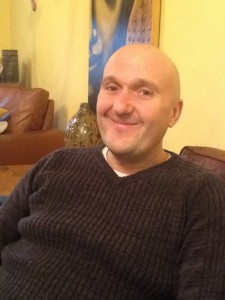 |
||||||||||
| In this experiential day | with no Powerpoints | Dr Lloyd will be explored how to access and work safely with the inner-child of the client. Incorporating ideas from the likes of Penny Parks and John Bradshaw | Jonathan disclosed how to engage effectively in a non-scripted way. He used various forms of language and relating in this hands-on workshop. Metaphors and creativity were very much at play. Various models of working were also be considered. | |||||||
| Jonathan is the co-founder of Mindsite (if you have been to one of our events before you will recognise him) and has worked in private practice with well over 10 | 000 hours of supervised practice. His professional doctorate in counselling from the University of Manchester was based on research on the use of metaphor in therapy. He has recently written a book on the subject called Whales in the Desert. He has presented at many conferences internationally. See a recent review of his latest book | Whales in the Desert by Bob Cooke | www.youtube.com/watch?v=ZCybv9m4KCY |
Rachel Fairhurst
An Introduction to working with complex trauma and PTSD 22nd June 2019. Total Fitness, Wilmslow.
A highly relevant introduction to a systematic evidence-based approach to working with trauma.
This one-day experiential workshop lead you through the three phases of working with complex trauma and PTSD. We learned about trauma-focused assessment tools, symptom cluster categorisation, the impact on hyperarousal levels and how to target and reduce re-experiencing from the mind, body and emotions.
Rachel informed us about the neurobiology of trauma and PTSD, and how to distinguish between appropriate multi-model applications of either a top down or bottom up processor and how to practice safely and consistently with complex trauma and PTSD
Each phase covered :
Phase one: Safety, stabilisation (symptom management, flashback, trigger & anxiety reduction, improving emotion regulation and addressing current stressors and schema activation)
Phase two: Trauma processing (focused processing of traumatic memories, emotions, cognitive beliefs) with a top-down (prefrontal cortex) and bottom-up (limbic system)
Phase Three: focuses on increasing self-esteem, self-respect and increasing healthy connections and exploring and integrating a sense of identity.
We had an opportunity to apply and experience some of the different tools and techniques during the day.
Biography
Rachel Fairhurst, PG Dip, EMDR, Bsc Hons, HND, Cert Hyp, CPT, STAIR, IRRT, PE is the creator and director of Integrated Trauma Solutions, a cutting edge accredited therapy, training and education centre. Rachel is a qualified traumatologist and works with highly complex cases referred by the Royal Navy, local authorities, Schools and other charities. Rachel is also an occasional Associate Lecturer at the University West of England (UWE), where she delivers trauma-focused practice training to the advanced mental health training programme. Further training is delivered to multi-agency teams working in youth offending, social services, law enforcement, and many more. Rachel’s passion in life is to bring this specialist, evidenced-based approach to working with complex trauma and PTSD to other professionals working with clients who have experienced Adverse Childhood Experiences (ACE). Rachel has now written a level 5 and level 6 diploma in this specialist approach, which is fully accredited by the CPCAB. Rachel is currently developing a 15-acre therapy centre where she runs retreats and includes Equine Facilitated Therapy as one of the interventions and opportunities for learning and personal development.
National Council of Psychotherapists (NCP) 202825 – Accredited therapist
National hypnotherapy Society HYP14-01635
CPDSO Training provider number 21676
Attachment, the Body and Trauma: with Dr Nicola Diamond. 27th September 2019.
In this Seminar and Workshop, we explored how our attachment relationships are embodied. A key concern being the way significant others can really get under our skins and live on in our bodies. We specifically looked at how attachment disturbance can manifest in bodily symptoms and illness. Although the neurobiology of attachment is seen as profoundly relevant, we also looked at the power of memory, belief, meaning and metaphor in the formation and in the expression of bodily states. In this context intergenerational transmission of trauma was a focus. Engaging with the body states and symptoms our client’s ‘present’ is considered crucial for changes to take place in psychic experience. How to work with bodily communication in psychotherapy, both verbally and non verbally was addressed. Different types of somatic bodily manifestations were identified and the importance of understanding these differences was .
The approach to clinical work was attachment psychoanalytic psychotherapy, when working with John Bowlby’ ideas about the attachment history and memory in the clinical setting will be seen as highly relevant as well as with re-enactments as a way of working with and through overcoming the experiences of bodily trauma. Techniques and methods of working will be discussed.
The format of the day was a theoretical and clinically informed presentation, Group discussions and working groups. People will be encouraged to bring case material in a confidential setting to explore the modes of understanding and methods of working that have been put forward throughout the day.
Dr Nicola Diamond: Senior Lecturer in Psychosocial Studies, University of East London, also at the Tavistock Clinic. She is a Psychoanalytic Psychotherapist with former BAP, now BPF,(BPC reg). She runs a private practice. Previously worked as a psychotherapist for The Helen Bamber Foundation (for survivors of torture and trauma) and at the Women’s Therapy Centre in London. She is the author of Between Skins: The Body in Psychoanalysis -Contemporary Developments; Wiley &Sons (2013) and co-author of Attachment and Intersubjectivity with Mario Marrone; Whurrs publisher (2003). Recent journal and chapter publications include, ‘Between bodies: Working in the liminal zone with traumatised clients’ ( written with Paola Valerio), ‘A case of Missing Identity: Working with disassociation and ‘multiple selves’ in the Countertransference’ (writte with Mario Marrone) in Introduction to Countertransference in Therapeutic Practice-A Myriad of Mirrors, ED Valerio, P (2017) ; ‘Exploring Some Vicissitudes of Feminine Sexuality’ in Free Associations (2013), The Body and Film: Estranged Body States – A Case of das Unheimlich, Journal of Psychosocial Studies(2013), ‘Between the Body and Social Trauma: Working with the Aftermath of Torture’ in the book, Emotion:Psychosocial Perspectives, Eds: Sclater & Jones atal Palgrave(2009); ‘Between Touches’ in Dialogues on Touch in the Psychoanalytic Space, Ed: Galton Karnac, (2007), ‘When Thought is not Enough’ in book How Does Therapy work, Karnac, Ed: Ryan(2005) and ‘Attachment Trauma and the Body’ in Attachment theory and the psychoanalytic Process, Eds: Cortina &Marrone, Whurr (2002).
Venue
St Thomas Centre, Ardwick Green North, Manchester M12 6FZ.
Human Givens and Emotionally Wealthy People with Freyja Theaker. 8th November 2019.
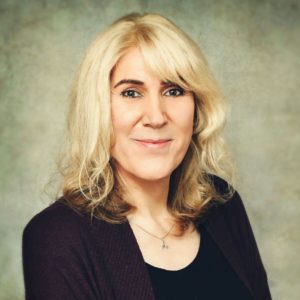
Freyja Theaker has worked as a teacher, economic reformist, conference organiser, national charity leader and IT consultant in the City of London for the Bank of New York and the Lloyds reinsurance market. She then went on to launch social enterprises delivering social and environmental change.
Freyja has also worked alongside some of the world’s pioneering women in ethical business, including Dr Hazel Henderson and Dame Anita Roddick MBE.
Drawing on her rich diversity of experience in economics, entrepreneurship, education, psychology, gender studies and spirituality, her membership and qualifications include:
- Professional Member Human Givens Institute
- Member of Gender Identity Research & Education Society
- Member for the Society of Peace Education and Culture
- Fellow Royal Society of Arts
- Post Graduate Diploma Human Givens Psychotherapy
- Post Graduate Certificate in Education
- BA (Hons) Social Sciences (Economics).
Freyja Theaker presented her life-changing workshop Emotionally Wealthy People to
transform your relationship with money. Emotionally Wealthy People explains the economic and psychological causes of how the current monetary system has become a global addiction distracting us from the core purpose of living. Emotionally Wealthy People teaches you a clear and profound set of psychological principles and practices that allow you to rebalance your relationship with money through rebalancing your life based on your core needs.
Freyja’s work is based on a thorough grounding in financial and psychological training and
education, inspired by her lifelong work in economic reform, Human Given’s Psychotherapy,
Buddhism, Dr Hazel Henderson and Dr Margaret Paul amongst many other sources.
Venue
Quaker Meeting House, 2 Cooper Street, Stockport, SK1 3DW (follow SK1 3QL on sat nav). 5 mins from Stockport Station.
The look of insecure attachment: with Prof Nicolas Lorenzini. 25th November 2019.
This day was delivered by Prof Nicolas Lorenzini Psychologist, MSc in Psychoanalytic Studies, PhD in Psychology. Honorary Research Fellow at the Research Department of Clinical, Educational and Health Psychology at University College London. International Manager of Giunti Psychometrics. Close research colleague of Peter Fonagy and Vice-President of the International Association for the Study and Development of Mentalisation (AIEDEM). Member of the International Liaison Committee of IAN-UK. Visiting Reader on personality disorders of the Pontificia Universidad Catolica de Valparaiso, Chile. Researcher at Open Door Young People Service, London. Member of the Chilean Group for the adaptation of the Operationalised Psychodynamic Diagnosis Structure Questionnaire (OPD-SQ) to Chilean contexts. Private therapist and lecturer in Berlin, Germany.
This day included:-
- What we observe with insecure attachment styles and how they regulate their emotions.
- How these adaptive/protective strategies link with presenting behaviours.
- The role of fear.
- How we can promote earned security and a safer environment.
- Exploring reflective practice and growth and the role of mentalisation.
Dr Jonathan Lloyd: Immediacy, Counter-Transference & Self-disclosure in the therapy room. 13th March 2020
Dr Jonathan Lloyd is the co-founder of Mindsite and runs a busy private practice in Bramhall. He is a director of the International Attachment Network and the author of Whales in the Desert. He has lectured and presented at conferences across Europe. In this experiential workshop, Jonathan explored the potency and pitfalls of self-disclosure in the therapeutic relationship. This was a very ‘hands-on’ day with the emphasis on group discussion and involvement. Self-disclosure has the potential to be a ‘marmite’ moment. When it goes well it can be very useful for our clients but it can also disrupt the process. He questioned when it is appropriate to use the counsellor’s self and counter-transference. Through practical demonstrations and case studies, the group explored how to effectively introduce these feelings into the therapeutic relationship.
Using Attachment Theory in relationship counselling 14hrs CPD – 2 days). With Nicola Jones – Endorsed by the International Attachment Network: DATES: 31st July & 1st August 2020.
Attachment theory provides the most reliable and research-based approach to working with couple clients available today. It provides a framework for understanding how individuals form close relationships and regulate emotions across the lifespan ‘from the cradle to the grave’ (Bowlby, 1979). An attachment-informed approach enables you to help your clients get to the heart of their relationship problems: the needs for security, connection, intimacy and love.
Learning objectives:
- Learn key concepts of attachment theory linked with infant development and related to adult attachment
- Understand attachment as a motivational system for the seeking of safety and security and how it links with other motivational systems and neuroscience to gain insight into attraction, relationship security (and insecurity) and intimacy [based principally on the work of Jaak Panksepp, Mauricio Cortina, GiovanniLiotti and Stephen Porges]
- Identify triggers of and threats to the attachment system and the impact of relationship transitions
- Explore interactions of attachment styles in a couple with reference to numerous clinical vignettes and a case study
- What it means to work as an attachment informed relationship therapist
- Tools, exercises and practical strategies to enhance clients’ awareness of their attachment style
- Participants to reflect upon personal attachment patterns and how they may show up in practice
- Appreciation of the links between the attachment system and developmental trauma and its intergenerational transmission
Bio: Nicola Jones is an experienced relationship therapist and an accomplished trainer and facilitator. She trained with and worked for Relate, trained with The Bowlby Centre for 2 years and is accredited by the National Counselling Society. She has an MA in Gender Studies, SOAS, University of London (2008). Nicola has had supervision with those who worked with or were supervised by John Bowlby. She is Vice-Chair of the International Attachment Network and works privately in Bristol with individuals and couples. Her first career was as a solicitor and family business adviser. Nicola has presented internationally on a range of matters related to social justice.
Christiane Sanderson: Working with Chronic Shame in the Therapeutic Space: Rearranged to online on 24th October 2020.
Shame is like a virus that infects the soul and yet remains largely hidden. As a primary emotion shame regulates social behaviour and is adaptive in promoting empathy and respect for others. However, for many clients shame can become chronic and have an inhibiting and paralysing effect on individuals in which they withdraw from others This is particularly the case for those that carry the burden of intergenerational shame or are raised in shame prone families, or who have histories of abandonment, prolonged or systematic emotional, physical or sexual abuse, neglect or exposure to domestic violence.
This training day will examine the complex nature of shame, its origins and function. It will distinguish between adaptive shame and chronic shame, guilt and shame, and it’s the relationship to hubristic and authentic pride. It will explore the impact of chronic shame and long term effects, and identify the various defences against shame such as withdrawal, attacking self, avoidance and attacking others and their link to self-harm, addictions, repugnant obsessions, perfectionism, narcissism, grandiosity, rage and violence. The focus will be on being able to identify not just clients shame but also practitioner shame and how shame manifests in the therapeutic space, including shame’s inhibitory effect on cognitive functioning and mentalising, its role in the resistance and therapeutic impasse, and the need to link this to dysregulated emotional states. This combined with enhancing practitioners awareness of their own shame along with any defences against shame in order to minimise the risk of re-shaming clients.
This training day will provide professionals working with shame an opportunity to develop and enhance their existing skills by adding new techniques to their therapeutic repertoire. Practitioners will be introduced to a range of top-down processing techniques as well as bottom-up techniques that facilitate right-brain engagement. A number of tried and tested exercises and creative techniques will be explored that can help clients to identify chronic shame so as to break the silence and secrecy of shame and build shame resilience through authentic pride. Participants will be able to familiarise themselves with a series of experiential exercises including creating a web of shame, developing a Circle of Shame, the use of masks to cover up shame, making shame genograms to identify the intergenerational transmission of shame, the embodiment of shame and working with nesting dolls, practitioners will be able to uncover hidden shame and explore the range of shame defences. The focus will be on uncovering not only the client’s shame but also the practitioner’s shame in order to facilitate working with client’s who are drenched in chronic shame. In emphasising that the best antidote to shame is to talk about it, practitioners will be able to help clients build shame resilience and restore authentic pride.
Emphasis was on:
- Experiential exercises that enable practitioners to explore what shame means to them and to enhance their understanding of their own experience of shame. In breaking the silence and sharing their shame with others they feel more equipped to tolerate and work with shame in the therapeutic setting.
- The origins and function and function of shame, and distinguish between healthy shame and chronic shame, shame and guilt and its relationship to hubristic and authentic pride
- Shame as a social emotion that regulates social behaviour but can become chronic through the intergenerational transmission of shame in shame prone families and through childhood physical and sexual abuse.
- The impact and long term effects of shame and how this manifests in practice.
- Identify the primary defences against shame such as withdrawal, attacking self, avoidance and attacking others in both client and practitioner and their link to self-harm, addictions, repugnant obsessions, perfectionism, narcissism, grandiosity, rage and violence.
- Identify not just clients shame but also practitioner shame and how this impacts on the therapeutic relationship and the therapeutic process including practitioner shame to minimise the risk of re-shaming clients
- The role of chronic shame in emotional dysregulation, cognitive shutdown, resistance and therapeutic impasse
- Building shame resilience through a range of experiential exercises including reapportioning shame and the use of nesting dolls
Biography
Christiane Sanderson is a senior lecturer in Psychology at the University of Roehampton. With 30 years’ experience working in child sexual abuse interpersonal trauma and domestic abuse (and trauma), she has run consultancy and training for parents, teachers, social workers, nurses, therapists, counsellors, solicitors, the Catholic Safeguarding Advisory Committee, the Methodist Church, the Metropolitan Police Service, the NSPCC and the Refugee Council. She is the author of Counselling Skills for Working with Shame, Counselling Skills for Working with Trauma: Healing from Child Sexual Abuse, Sexual Violence and Domestic Abuse, Introduction of Counselling Survivors of Interpersonal Trauma, Counselling Survivors of Domestic Abuse, Counselling Adult Survivors of Child Sexual Abuse 3rd Edition, The Seduction of Children: Empowering Parents and Teachers to Protect Children from Child Sexual Abuse all published by Jessica Kingsley Publishers and The Warrior Within A One in Four Handbook to Aid Recovery from Childhood Sexual Abuse and Sexual Violence, The Spirit Within A One in Four Handbook to Aid Recovery from Religious Sexual Abuse Across All Faiths and Responding to Survivors of Child Sexual Abuse: A pocket guide for professionals, partners, families and friends all published by One in Four.
Christiane Sanderson: The Cost of Caring: Vicarious Traumatisation and Practitioner Self-Care. 27th March 2021. Online via Zoom.
Working with survivors can be emotionally and physically draining, so it is essential that professionals take care of themselves. To avoid vicarious traumatisation – or ‘burn out’ – it is critical that professionals have access to regular supervision, and professional and personal support. Such support is necessary, not just for counsellors but all professionals that support survivors in some capacity such as safeguarding officers, solicitors and legal professionals, advocacy workers and police officers.
To minimise the negative impact of exposure to traumatic experiences it is important to ensure that practitioners and professionals have a healthy balance between work and their personal life. If possible it helps to balance the work with survivors with other clients, or other types of work. Taking regular physical as well as mental breaks can minimise the development of secondary traumatic stress. It also helps to take regular exercise, to keep up physical energy levels and to remain embodied.
Professional self-care is imperative to restore vitality, enthusiasm, and energy. Working with survivors has the potential to shatter assumptions about the world, human nature and the meaning of life and death. It is vital that professionals do not allow this to destroy their own belief system by engaging in activities that help them to sustain their faith in human nature and maintain their zest for life. All in all, like survivors, professionals must make sure they remain connected. Through self-care and preservation of their own well-being professionals can ensure that they remain compassionate and are truly able to accompany the survivor on his or her journey to recovery and allow for vicarious post-traumatic growth and resilience.
The training will look at the range of factors that can lead to vicarious traumatisation and ‘burn out’ and put counsellors and practitioners at risk of developing Secondary Traumatic Stress (STS). It will explore the signs and symptoms of burn-out and secondary traumatic stress and how these can be managed both individually and by organisations to ensure staff well-being. The focus will be on how practitioners can ensure self-care, and how supervisors and managers can ensure minimising the risk of STS in staff. Through a number of assessment measures and experiential exercises practitioners will have an opportunity to identify their own vulnerability to burn-out and explore strategies to manage the impact of working with clients so that they can remain present and engaged in their work.
Emphasis will be placed on
- Understanding vicarious traumatisation, burn out and secondary traumatic stress and the cost of caring
- Recognising the signs of burn out and secondary traumatic stress
- The impact of STS on practitioners and professionals as well as organisations
- The impact on professional and personal functioning
- The importance of self-care
- The range of self- care strategies to ensure professional and personal well-being.
Biography
Christiane Sanderson is a senior lecturer in Psychology at the University of Roehampton. With 30 years’ experience working in child sexual abuse interpersonal trauma and domestic abuse (and trauma), she has run consultancy and training for parents, teachers, social workers, nurses, therapists, counsellors, solicitors, the Catholic Safeguarding Advisory Committee, the Methodist Church, the Metropolitan Police Service, the NSPCC and the Refugee Council. She is the author of Counselling Skills for Working with Shame, Counselling Skills for Working with Trauma: Healing from Child Sexual Abuse, Sexual Violence and Domestic Abuse, Introduction of Counselling Survivors of Interpersonal Trauma, Counselling Survivors of Domestic Abuse, Counselling Adult Survivors of Child Sexual Abuse 3rd Edition, The Seduction of Children: Empowering Parents and Teachers to Protect Children from Child Sexual Abuse all published by Jessica Kingsley Publishers and The Warrior Within A One in Four Handbook to Aid Recovery from Childhood Sexual Abuse and Sexual Violence, The Spirit Within A One in Four Handbook to Aid Recovery from Religious Sexual Abuse Across All Faiths and Responding to Survivors of Child Sexual Abuse: A pocket guide for professionals, partners, families and friends all published by One in Four.



